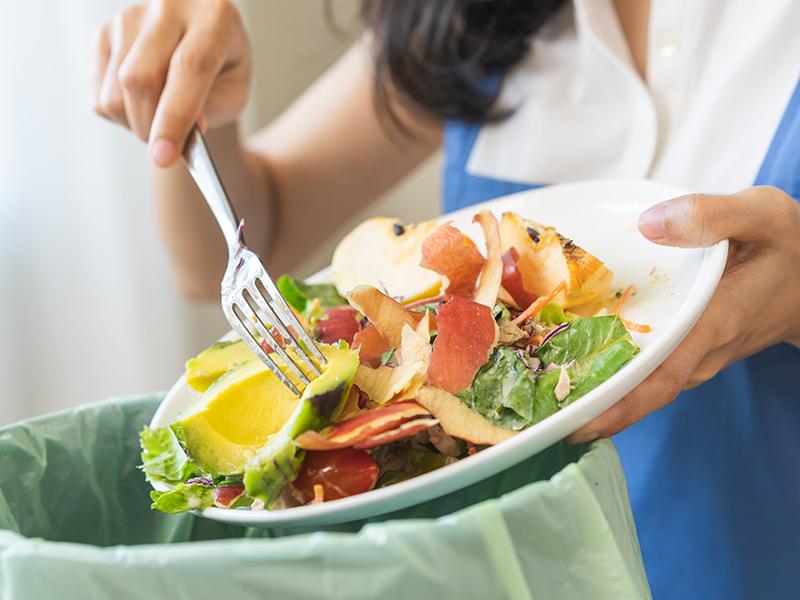An analysis of what’s in North Somerset’s rubbish bins shows that 27 per cent of the average bin contents is made up of food waste.
However, with many families still feeling the pinch because of cost-of-living pressures and needing to prepare more meals during the upcoming summer holidays, now is a good time to think about the food you throw away.
Five-step weekly food routine:
- plan ahead – decide meals, check cupboards and write a shopping list
- shop in control - stick to your list, buy loose fruit and veg, and check dates
- store food correctly – visit the Love Food Hate Waste website for tips
- keep an eye on fresh food and use up anything before its use-by date (‘best before’ is just a guide – it might not be at its best but is probably still safe to eat)
- use leftovers – recipes and ideas are on the Love Food Hate Waste website.
For unavoidable food waste such as veg peelings, egg shells, meat bones and tea bags, use the brown food caddy in your kitchen.
Once full, bag this food waste with any plastic bag and transfer to your larger food waste box, which is then emptied every week with your other recycling.
Still time to go plastic free
Could you be part of the solution to plastic pollution by joining a global movement avoiding single-use plastic?
We’re two weeks into the month but it’s not too late to join Plastic Free July.
This month shines a light on our throwaway culture and the environmental catastrophe it creates, while also sharing ideas about how to reduce plastic waste every day at home, work, school and even your local café.
Plastic is made using fossil fuels, can take hundreds of years to decompose, and litters our beaches, parks and streets. Much of it ends up in our oceans where toxins leak into the seawater. Animals can also mistakenly eat it and then starve to death.
When plastics begin to break down in the environment, microplastics are formed and these can enter our water and food supplies.
Top five tips for cutting plastic use at home:
- stop using single-use plastic – look for reusable alternatives to plastic straws, water bottles, coffee cups, carrier bags and more.
- ditch the soft plastic packaging – try to buy loose fruit and veg rather than packaged items, or dried goods from refill shops, found across North Somerset.
- switch your beauty products – look for items in recyclable or re-fillable containers
- make your own – bread, soup, hummus and potato salads can all be easily made at home. Cleaning products can be made from common household items
- look for plastic-free alternatives – try using alternatives to clingfilm or gift wrap.
Find out more on the Plastic Free July website.
Recycle disposable vapes
Throwing vapes in your black bin can cause fires as the lithium-ion batteries they contain can easily catch fire if broken.
Disposable vapes can be recycled from the kerbside – just put them in a clear, loosely-tied bag on the top your recycling box.
Keep them separate from anything else and make sure they can be seen easily by the crews.
Recycling centres have a separate bin for vapes.

